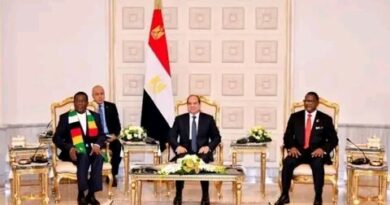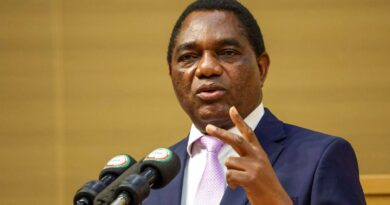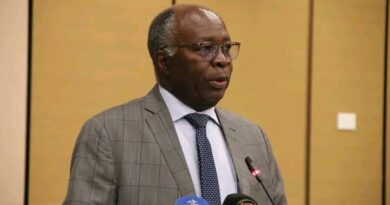African Leaders Demand Bold Action to Sustain Malaria Gains and Tackle Global Health Crises
African Heads of State and Government have issued a rallying call for united action to address escalating global health crises, warning that decades of progress against preventable diseases such as malaria, HIV/AIDS, and tuberculosis risk being reversed without urgent financing.
Meeting on the margins of the 80th United Nations General Assembly in New York, leaders gathered under the theme “Uniting for Global Health Security” at a high-level event co-convened by the Global Leaders Network for Women’s, Children’s and Adolescents’ Health, chaired by President Cyril Ramaphosa of South Africa, and the African Leaders Malaria Alliance (ALMA), chaired by President Advocate Duma Gideon Boko of Botswana. Discussions were moderated by Rt Hon. Helen Clark, former Prime Minister of New Zealand and Chair of the Partnership for Maternal, Newborn and Child Health.
Speakers highlighted the growing complexity of malaria eradication efforts, citing shrinking budgets, increasing biological resistance, humanitarian crises, and the impacts of climate change.
“The fight against malaria is becoming increasingly complex,” President Boko warned. “Shrinking budgets, rising resistance, and the effects of climate change are creating a perfect storm of challenges.”
President Cyril Ramaphosa cautioned that dramatic cuts in official development assistance (ODA) — estimated to have fallen by 70% between 2021 and 2025 — are compromising essential programmes. “Millions are left without care, and decades of progress are at risk,” he said.
Leaders reiterated support for the upcoming 8th replenishment of the Global Fund to Fight AIDS, Tuberculosis and Malaria, scheduled for November 2025. The replenishment aims to mobilise US$18 billion, which they said is vital to prevent the collapse of life-saving programmes and sustain momentum.
“If we all come together, we can save 23 million lives from malaria, AIDS, and TB while strengthening our health systems,” said President Boko, calling for bold donor commitments.
Since its inception in 2002, the Global Fund has been credited with saving more than 70 million lives worldwide.
Kenyan President William Ruto stressed the importance of African self-reliance in health financing. “The future of Africa’s health financing lies in our own hands. Encouragingly, change is already underway,” he said.
Countries such as Kenya, Zambia, and Ghana are establishing End Malaria Councils and Funds, which have collectively mobilised more than US$166 million. Meanwhile, leaders called on the World Bank’s International Development Association (IDA) to establish a second Malaria Booster Programme, building on earlier successes between 2005 and 2015 that strengthened local health systems and prevented millions of cases.
Dr Sania Nishtar, CEO of Gavi, underscored the importance of African vaccine manufacturing, pointing to the African Vaccine Manufacturing Accelerator and the introduction of malaria vaccines in 23 African countries. Early evidence suggests vaccinated areas have recorded a 13% reduction in all-cause child mortality.
To counter declining donor contributions, leaders urged the establishment of a Public-Private Partnership Health Accelerator, which would mobilise investment from private sector actors, philanthropic organisations, and the African diaspora.
“We need a private-public partnership health accelerator that drives whole-of-society progress towards the SDGs,” said President Boko.
The Vice President of The Gambia, Muhammed B.S. Jallow, supported the idea, emphasising its potential to deliver sustainable financing at a critical moment.
The meeting built on momentum from the Africa CDC’s ‘Big Push’ to End Malaria launched earlier this month in Abuja, which seeks to put malaria elimination at the centre of Africa’s health and development agenda.
Dr Jean Kaseya, Director General of Africa CDC, called on leaders to leverage the crises to strengthen Africa’s resilience: “We must raise sustainable financing, build our own data systems, manufacture our own vaccines and medicines, and reinforce surveillance. Africa is now leading the world.”
Professor Senait Fisseha, a leading advocate for reproductive health rights, urged African leaders to ensure that health systems reflect the values and needs of their people.
Concluding the meeting, President Ruto said: “Resilient health systems are the cornerstone of dignity, security, and prosperity. We can make malaria elimination a reality and deliver a healthy tomorrow for women, babies, children, and adolescents. The time to start is now.”


